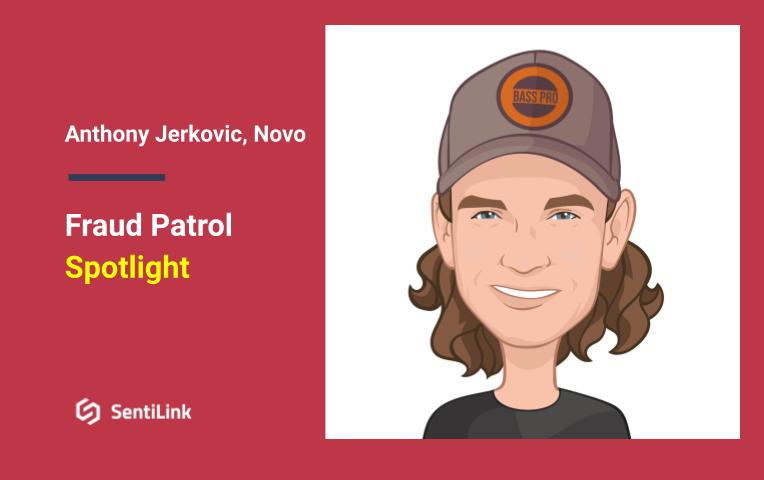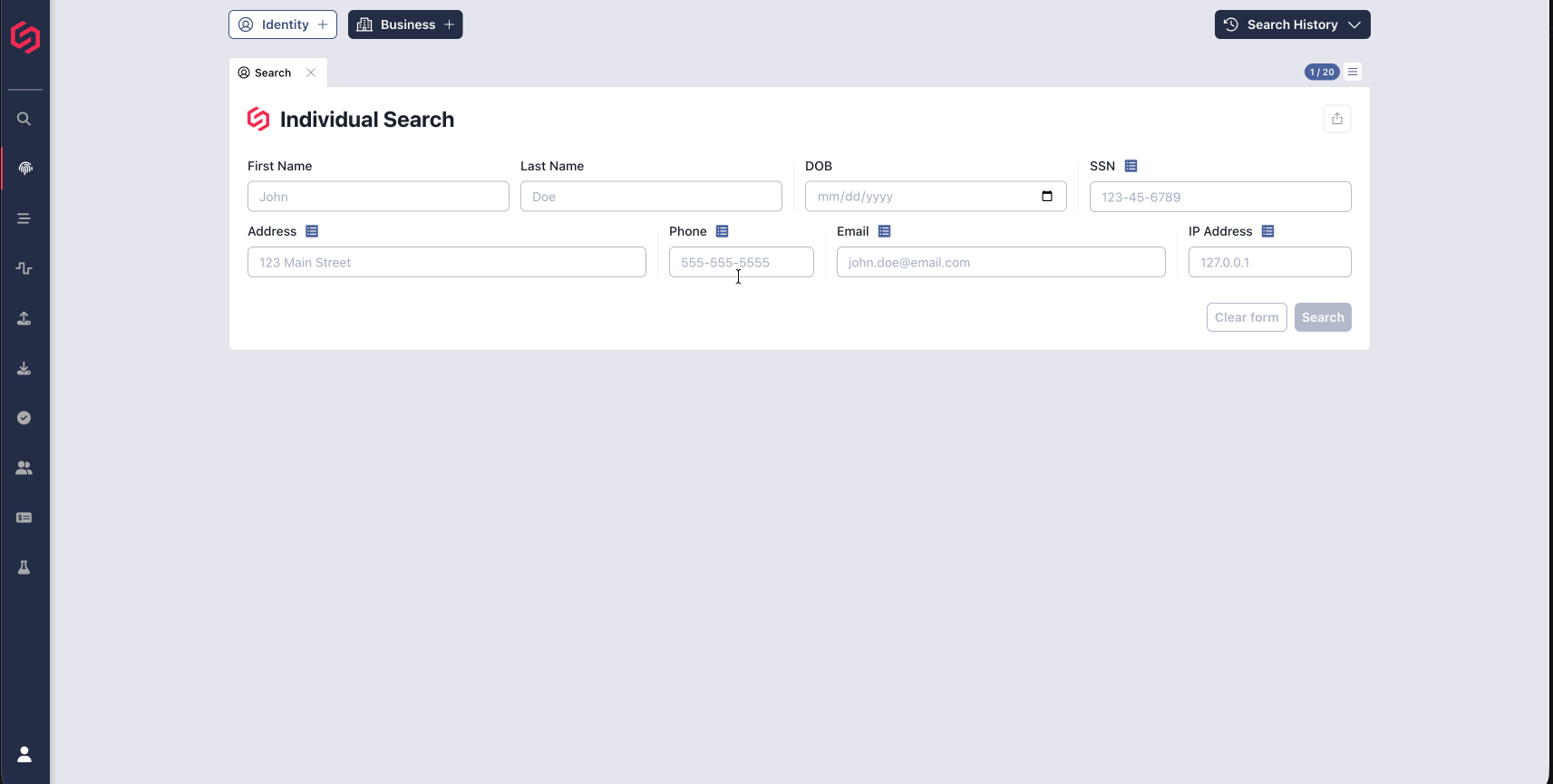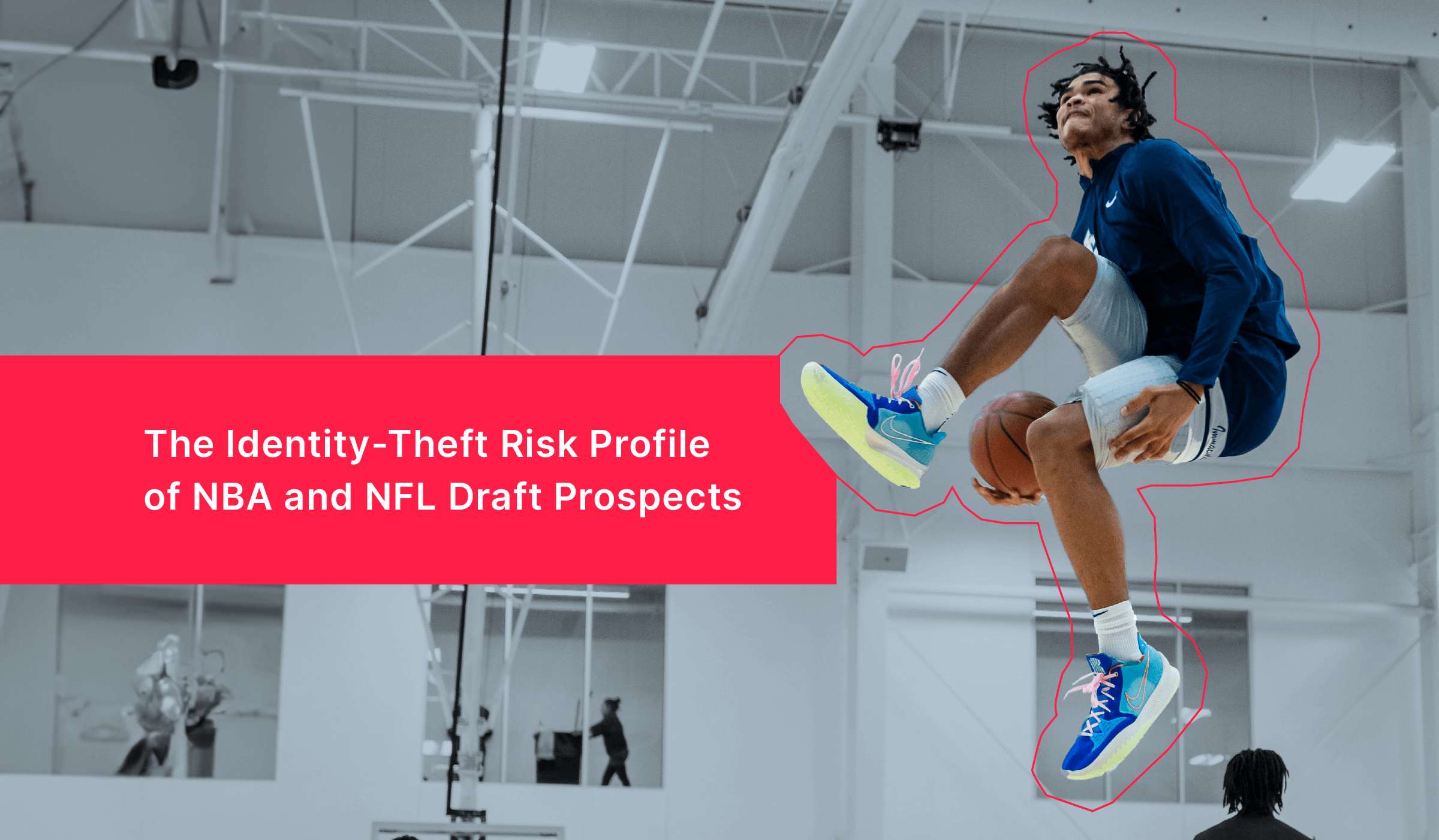Blog post
Fraud Patrol Spotlight: Anthony Jerkovic, Novo
SentiLink
Published
June 8, 2022

Introducing, Anthony Jerkovic, Head of Data & Risk at Novo, a fintech that provides banking services to U.S.-based small businesses. We had a great interview with Anthony where we learned how he got into fraud, the types of fraud he's seeing and predictions for how fraud will evolve over the next year.
Check out the transcript below or watch the 20 minute video.
Robby: Hi there, and welcome to another SentiLink Fraud Patrol Spotlight. I'm Robby Perry. I'm excited to have with me Anthony Jerkovic from Novo. Anthony is the Director of Data at Novo. Anthony, welcome. It's great to have you.
Anthony: Thank you. Robby. Great to be here.
Robby: Let’s jump right In. I would love to start out with you telling me a little bit about Novo and then a little bit about your role there.
Anthony: Sure, So Novo is a technology platform. We provide banking services to US-based small businesses. Think of any digital bank like Revolut or Nubank. Novo is exactly that but specifically for small businesses. We've been around for a few years and have a pretty considerable set of accounts that we’ve onboarded and monitor on a daily basis.
In terms of my role, it has evolved over time. I started out more on the KYC side of things to set up a lot of our verification systems and really spend most of my time working within that field as well as compliance and general partner financial institution relationship management. More recently, I've evolved to diving deeper into the data side of things. Not only specifically around fraud, but all data problems. Advanced modeling, data engineering, and data science at Novo falls under my purview at the moment.
Robby: Okay, excellent. I would love to know how you got started in fraud?
Anthony Yeah. Probably not the most conventional of paths. I didn't necessarily wake up one day and decide I wanted to track down fraudsters for a living. Nor is it the only thing that I do, but anyone who works in the fintech space, they end up spending a lot of time, a lot of energy in this space because fraud is a cost to doing business. It is something you have to be aware of and keep in check.
I come from more of a business background. I studied economics and finance in undergrad. I spent a bit of time in the military. So maybe getting a bit of focus on security kind of inclined me towards that fraudster mindset. I moved from Australia originally where I did my undergrad and got some work experience there doing corporate advisory-type work. I moved to the US to do further studies. I got a masters in applied analytics from Columbia and it was at that point where I accidentally ended up working at a fintech, but that wasn't the plan. And it so happened that the need of the moment was understanding risk profiles - how we can approach onboarding, not just KYC as a regulatory aspect of what are the pieces of information that need to be validated in order to open up a checking account. But how can we take that information plus other information that we can glean from vendors or elsewhere and really understand the best we can at the point of onboarding our customers. So, my foray into fraud came from that regulatory side of KYC, but obviously the next step after account opening is account management and whether it's a checking account product or a credit product. There's a life cycle of management that needs to take place. And when you start seeing malicious intent and activity, you need to respond accordingly. Probably my first dealing with fraud was when things started happening and we knew that we needed to have systems and processes in place to deal with bad actors.
Robby: Yeah, absolutely. It’s great to hear people's stories about how they got into fraud because I don't think anyone comes out of high school going. Hey, I want to get into fraud. We all have these interesting stories about how we fell into it. And most find it super interesting and once you're in it, you love it. Your angle is obviously very data intensive. I’d love to get insights or best practices that you've seen and experienced.
Anthony: Good question. There’s a lot of ways that I could answer. Obviously we're a partner of SentiLink, and we’ve worked with the team for quite a while. And so that kind of alludes to
the point that tackling all the problems on your own is ambitious right? It's possible. You don't need to work with vendors, but having a consortium view, a more global view that comes from someone familiar with the space and working with other existing financial institutions - that gives you an ability to understand fraud a bit better. I wouldn’t say that having an endless list of vendors is the answer either.
There's a lot of “Secret Sauce” in what you do and whatever it is you’re building that you rely on and need to invest in. The great data problem of the last and the upcoming decade is the gold mines that people are sitting on - whether it’s front end or back-end data that’s being collected as people interact with your platform. It can tell you a lot about who your customer is. That’s what it all comes down to is understanding who it is you’re dealing with. The person that you think is on the other side of the screen.
Robby: Yeah, absolutely. I couldn't agree with you more. That's one of the things that I've always enjoyed about the fraud world is the benefit from sharing information and that most folks can be fairly open to it. We all are fighting the same fight to a certain extent and there's a lot of power and opportunity when you come together to do that. So you mentioned Novo is in the business realm. What are some of the types of fraud that you typically see?
Anthony: There are lots of different types coming through the platform, but what's important to note is, particularly in the post COVID-era where digitalization for every company, but particularly Financial Services was really forced. That was a sticking point for some people pre-COVID. Hey, do I really want to have a bank account and get banking services from an online platform where I can't physically go into the branch?
What's important to know is that first party fraud still occurred at physical bank branches where people signed up for accounts in person. What I’m driving at here is that the types of fraud are the same as what you would have in any financial institution. You’d have your instances of bust out, essentially underwriting individuals who they are who they say they are, but they end up doing something which is going to cause an exposure on the system.
Oftentimes underwriting that risk can be difficult because it’s very much situation driven. That person may have bad debts. They may have a personal situation that forces them to that point where they commit fraud. So, it’s not necessarily friendly fraud, but it’s not necessarily a bank robber who’s looking for ways to penetrate the system. They found an opening, they had a problem they needed to solve, so they did that.
Separate from those types of examples, synthetic is like the great unknown in the space. Whether you’re talking to banks or fintechs, synthetic fraud and orchestrated fraud rings are things that keep people up at night. It’s something people want to understand better. It requires continuing investment into the space so that we can combat this type of vector. The third one I would mention is the social engineering side of things. They're probably a professional fraudster, and they know exactly what they're doing. They’re getting people to sign up for something to receive or send payments and take a cut and not realizing that they’re part of a broader orchestration. So, you see all these types of vectors and each of them needs a different strategy to mitigate.
Robby: It sounds like you're seeing a little bit of everything. Do you have a craziest or maybe the most impressive fraud case that you've seen so far?
Anthony: Yeah, the PPP program during covid. It’s common knowledge the extent to which that was attempted to be exploited. We know that there are large sums of funds that were paid from the US government to fraudsters whether they were onshore or offshore. We've seen examples of both. That was everything from people that had a business that forged some documentation to the Lakers getting a PPP payment and getting it reversed because it looked bad from a PR standpoint through to this broad organization, social engineering. If you’re able to look broader especially in chat rooms in the dark web, there were a plethora of advice and guides out there to exploit (PPP fraud). That was really eye-opening.
I know personally so many businesses that really benefited (from PPP) or were really in a tough spot. They could make rent or payroll because of PPP. By and large it was a positive but certainly on the fraud side a lot of learning. I know even SentiLink, you guys came out with additional models purely based on the kind of things you saw there as well.
Robby: I'm glad you brought up. The COVID relief that came through during that time, it was a double-edged sword. You had so many folks, small business owners that really needed some help and relief, but at the same time, fraudsters found a way to take advantage of the money being handed out.
I’d also like to know what’s one of your proudest accomplishments?
Anthony: Just seeing what we've been able to achieve. When I joined Novo, we had zero accounts. I've seen that grow to over 200,000. I've seen spikes and troughs. I've seen the progression and being able to from day one be there as the MVP architect, bolstering the team bring on more experience really improving the systems and also building out all the operations - creating a platform and funnel that aims towards lowest friction as possible but greatest security that we can have. To think you can stop all bad actors before they get onto the platform is simply impossible. I mentioned the cost of doing business with fraud. I’m proud of the way that we’ve matured as an organization to understand that. Today we have a lot of measures in place that allow solid businesses and good actors in the market get access to the financial services they need but also in a way that’s economically sustainable for us. We’re not just opening the doors and putting ourselves at risk.
Robby: That’s definitely something to be proud about, being able to see it from the ground up.
What predictions do you have on how fraud will evolve over the next year?
Anthony: I'm very bullish on management and behavioral analytics. I really believe that’s the key to understanding who it is that you’re dealing with and whether or not they’re a bad actor. As important as verification is, ongoing monitoring and reinforcement learning around that is going to be a game changer. I guess that’s more of the solution side. In terms of the problem, you can look at the macro market at the moment. I just watched a video of Jamie Dimon referring to the next 12 months as a hurricane! With that brings economic hardship, and necessity and fraud. People bend their ethics and if you’re looking at fintech where it’s digital, it’s faceless, potentially people feel very differently about committing some kind of fraud compared to sticking up a bank. I can imagine seeing more opportunistic fraud. More social engineering. That’s not going away anytime soon. The way we combat that is doubling down on the analytics front. You really need to understand your core data and have the systems and processes and the tech stack in place to leverage it so you can see how things are changing over time and not retroactively - not have to call someone up and ask, “can you help us understand why X, Y, and Z is happening.”
Robby: It is interesting to hear Jamie Dimon describe the next year as a hurricane. There will be some ups and downs. Fraud always seems to flourish in financial difficulty.
I’d love to know a little bit more about you Anthony. What are some things that you do for fun?
Anthony: I love the outdoors. So, anything involving the water like scuba diving and wakeboarding. That's right up my alley and otherwise reading is one of those things that I wish I did more of. I'm into military history and philosophy. I also can't say no to a good glass of wine and a nice dinner somewhere.
Robby: Okay. Well, very good. Do you have a favorite, place to do some snorkeling or something like that for you?
Anthony: Most people would say Great Barrier Reef. I’ve actually never been diving there. But I'm from Western Australia. There’s a place called Ningaloo Reef and it's not a barrier. It’s what is called a fringing reef. So, it's closer to shore. It’s the largest or 2nd largest one in the world and you can essentially walk off the shore and see manta rays and whale sharks, your “Finding Nemos” and all those kinds of things. It’s a pretty amazing place. If you ever get to Western Australia I definitely recommend Ningaloo Reef.
Robby: Okay, excellent. It sounds fantastic. All right Anthony. I appreciate you taking some time with me today. It has been great to learn more about you and your background and your perspective on fraud.
Anthony: Thank you so much. It was great to be here.
Disclosure: Novo is a fintech, and not a bank. Novo acts as a service provider to Middlesex Federal Savings, F.A., and the deposit and banking products obtained through the Novo platform are provided by Middlesex Federal Savings, F.A.
Related Content
.png)
Blog article
February 20, 2026
Romance Fraudsters Have Found a New Target: Your Home Equity
Read article
Blog article
February 19, 2026
Introducing SentiLink Intercept: Precision Tools for High Stakes Fraud Decisions
Read article
Blog article
December 2, 2025